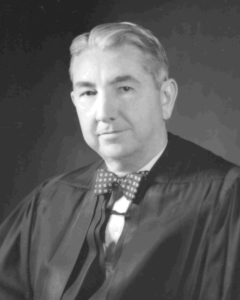
Mapp v. Ohio was a 1961 landmark Supreme Court case that determined that any evidence seized in violation of the Fourth Amendment to the U.S. Constitution– which protects U.S. citizens from “unreasonable searches and seizures”- may not be used in state courts. This decision extended the existing policy from federal to state courts.
On May 23, 1957, Cleveland, Ohio police received a tip that a bombing suspect and illegal betting equipment could be found in the home of Dollree Mapp. Police officers arrived at the home, but Mapp refused to allow them to search without a warrant. Several hours later, the police returned with a piece of paper-not a warrant- and attempted to enter Mapp’s home. Mapp asked to see the warrant, and upon discovering that it was fake, took it and put it in her dress. The officers then handcuffed her for ‘belligerent’ behavior and proceeded to search her home. They did not find the bombing suspect or any of the betting equipment that they were looking for. They found pornographic material that had been left there by a previous tenant, and arrested Mapp for possession of obscene material. Mapp was eventually convicted. Mapp was able to appeal to the Supreme Court, who ruled in her favor.
Back to Crime Library
|
|
|
